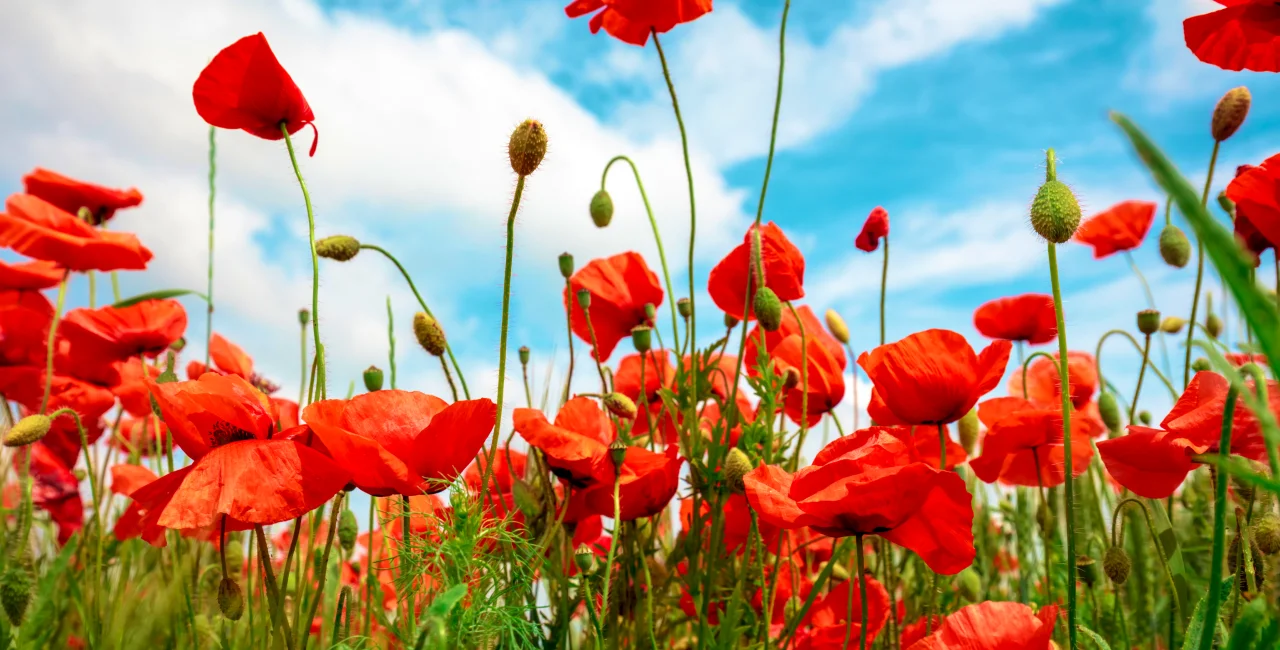The Czech Republic is renowned for its vast poppy fields that stretch across the countryside. As the world’s leading producer of edible poppy seeds and the second-largest exporter globally, the country’s poppies are a key ingredient in everything from traditional pastries to savory pasta dishes.
A new exhibit at Prague’s Museum of Agriculture examines the seedier side of this agricultural success story, a troubling trend that has law enforcement on high alert.
From seeds to 'očko': A growing problem
Every summer, Czech police confront a disturbing scene: people camping in the poppy fields of Prague and Central Bohemia, harvesting the crop not for culinary purposes but to produce a crude narcotic known as “očko.” This drug, processed from dried poppy juice or straw, mimics the effects of heroin—though it is far less potent. For users, “očko” (little eye) often serves a single, desperate purpose: staving off withdrawal symptoms. However, it sometimes leads to fatal overdoses, underscoring its dangerous potential.
The individuals involved in this illegal activity are often drug users themselves, many with prior convictions for similar offenses. For them, it’s rarely about profit. It's about survival. The drug is quickly made in makeshift labs, and for many addicts, it’s the only means to get through a day.
Producing očko involves an arduous process of extracting morphine from dried poppies or poppy straw—a byproduct that can be deceptively potent. The morphine and codeine content in edible poppy varieties grown in Czech fields is relatively low, averaging around 5.6 mg/kg, well within the European standard of 20 mg/kg. But through chemical extraction, illicit producers can isolate up to 80 percent of the available morphine, making the substance potent enough to be dangerous.
Last year, police in Prague seized more than 210 kilograms of poppy seeds containing over 1,000 grams of morphine base. According to authorities, this amount could yield approximately 800 grams of heroin with a purity of 80 percent.
This summer alone, Czech police uncovered several instances of “očko" production, with fatal consequences. In Prague, three cases of fatal intoxication from poppy-derived substances were reported. In another harrowing incident, a man’s body was found in a Central Bohemian poppy field, surrounded by tools for administering drugs—a stark reminder of the dark side of this seemingly innocent crop.
Pop-up facts about poppies
- Czechia is one of the world's largest producers, exporters, and consumers of poppy seeds.
- In Czechia, poppies are primarily grown for seeds, while in other European countries, poppy straw is the main product due to its potential use in drug production.
- Czech poppies are mainly exported to neighboring countries like Poland, Germany, Hungary, and the Netherlands, as well as to the U.S.
- There are around 50 varieties of poppies registered in Europe; the most common varieties in Czechia are Major, Maraton, and Bergam, known for their white or light pinkish-white flowers.
- White poppies, though rare in baking due to their cost and strong aroma, are richer in oil and protein, making them nutritionally beneficial.
- Blue-seed poppies, which are rich in oil content, are more widely used in Central European cuisine for producing poppy milk and as a filling for buns and cakes.

Source: Radio Prague
An ongoing battle for law enforcement
Czech law enforcement is caught in a constant battle against this cheap form of drug production. Since 2018, police have dismantled 20 illegal opioid laboratories, most of which rely on poppy seeds or certain opioid-containing medications as precursors. These makeshift operations are usually small-scale, catering to the needs of local users rather than generating massive profits. Still, the impact on communities and regional agriculture is profound.
“Every year, we deal with cases of people camping in fields and harvesting the poppy crop,” said Capt. Lucie Šmoldasová, spokesperson for the National Anti-Drug Headquarters SKPV PČR. “The perpetrators are often repeat offenders, motivated by the urgent need to ward off withdrawal symptoms and supply the drug to their community.”
New exhibit examines dual role of poppies
Under Czech law, producing "očko" carries penalties ranging from one to five years in prison or a substantial fine. However, the penalties are even more severe for larger quantities or distribution.
The paradox of the Czech poppy industry is striking. On one hand, the country is a world leader in producing poppy seeds for baked goods, oils, and other food products. On the other, the same fields that supply the world with culinary delights are also fertile grounds for illegal drug production.
To shed light on the dual nature of poppies and other plants, the National Anti-Drug Headquarters SKPV PČR, in collaboration with Český Blue Poppies zs and Agritec Plant Research s.r.o., is hosting an exhibition at the National Agricultural Museum in Prague.
The exhibition, titled Poppy - Hemp - Drugs: Helpers, and Seducers of Mankind, will run from October to December 2024 and aims to explore the fine line between legal and illegal uses of plants like poppy, hemp, kratom, and others.













 Reading time: 4 minutes
Reading time: 4 minutes 


 English
(Advanced)
English
(Advanced) German
(Advanced)
German
(Advanced)

























